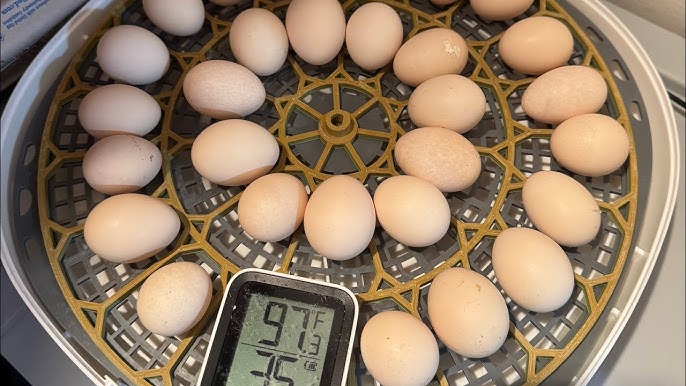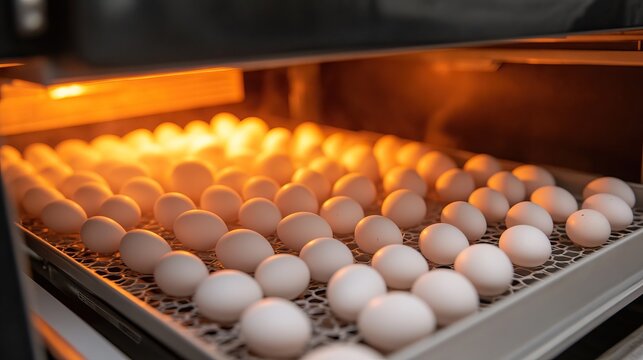For those in the poultry industry, mastering farm scale incubator management is crucial for ensuring high hatching rates and healthy chicks. The process of managing incubators on a large scale involves much more than simply placing eggs in a machine. From temperature control to humidity levels and turning schedules, every detail matters. In this guide, we’ll explore the essentials of farm scale incubator management and how you can optimize your operations for better results.

Understanding the Basics of Incubation
Before diving into the complexities of farm scale incubator management, it’s important to grasp the basics of incubation. Incubation is the process of maintaining fertile eggs under specific environmental conditions until they hatch. The key factors to consider are temperature, humidity, and egg turning.
Importance of Temperature and Humidity
Maintaining the correct temperature and humidity is vital for the successful incubation of eggs. Typically, the ideal temperature for chicken eggs is around 99.5F (37.5C). Humidity should be kept at approximately 50-55% for the first 18 days and increased to 65-70% for the last three days of incubation. This ensures proper moisture loss and chick development.
Turning Eggs Regularly
Regular turning of eggs is necessary to prevent the embryo from sticking to the shell. In a farm scale setup, automatic turners are often used to ensure consistency. Eggs should be turned at least three times a day until the last three days of incubation.
Choosing the Right Incubator
Choosing the right incubator is crucial for efficient farm scale incubator management. There are various types of incubators available, ranging from small tabletop models to large commercial units. When selecting an incubator, consider factors such as capacity, ease of use, and the level of automation.
Commercial vs. Small-Scale Incubators
Commercial incubators are designed for large-scale operations and can accommodate thousands of eggs at a time. They offer advanced features like automated temperature and humidity control, which are essential for maintaining consistency across multiple batches. Small-scale incubators, on the other hand, are suitable for hobbyists and small farms.
Automation in Incubators
Automation plays a significant role in farm scale incubator management. Automated systems can monitor and adjust temperature, humidity, and egg turning, reducing the risk of human error. This allows farmers to focus on other aspects of their operation while ensuring optimal incubation conditions.
For more insights on choosing the right incubator, visit this external resource.
Implementing Best Practices
Implementing best practices in farm scale incubator management involves more than just setting up the incubator. It includes preparing the eggs, monitoring the incubation process, and ensuring proper hatching conditions.
Preparing Eggs for Incubation
Proper preparation of eggs is essential for successful incubation. This includes selecting the right eggs, storing them correctly, and ensuring they are clean and free of cracks. For tips on egg selection and storage, consider reading this egg storage guide.
Monitoring the Incubation Process
Regular monitoring is crucial for maintaining optimal conditions during incubation. This involves checking temperature and humidity levels, as well as inspecting the eggs for any signs of distress or abnormal development. Candling, for instance, is a common practice used to monitor embryo development. Learn more about this process in our candling guide.
Dealing with Common Challenges
Even with careful management, challenges can arise during the incubation process. Understanding how to address these issues is a key component of successful farm scale incubator management.
Temperature Fluctuations
Temperature fluctuations can harm embryo development. To mitigate this, ensure your incubator is well-calibrated and located in a stable environment away from direct sunlight and drafts.
Humidity Issues
Incorrect humidity levels can lead to poor hatch rates. Regularly check your incubator’s humidity and adjust as needed. Adding water or using a humidifier can help maintain proper levels.
Post-Hatch Care
Once the chicks have hatched, providing proper care is essential for their health and growth. This includes maintaining a warm environment, ensuring access to clean water and feed, and monitoring their health closely.
Setting Up a Brooder
After hatching, chicks should be transferred to a brooder, a warm, safe space where they can grow. The temperature in the brooder should be initially set at around 95F and gradually decreased as the chicks mature.
Ensuring Proper Feeding
Providing the right nutrition is critical for the growth and development of chicks. Ensure they have access to a balanced starter feed and clean water at all times.
Conclusion
Effective farm scale incubator management requires attention to detail and a commitment to best practices. By understanding the fundamentals of incubation, choosing the right equipment, and implementing strategic management techniques, you can achieve high hatch rates and healthy chicks. Stay informed and adaptable, and your poultry operation will thrive.

FAQs
What is the ideal temperature for incubating chicken eggs?
The ideal temperature for incubating chicken eggs is approximately 99.5F (37.5C).
How often should eggs be turned during incubation?
Eggs should be turned at least three times a day until the last three days of incubation.
What are common challenges in farm scale incubator management?
Common challenges include temperature fluctuations and incorrect humidity levels, which can affect hatch rates.
This article contains affiliate links. We may earn a commission at no extra cost to you.











